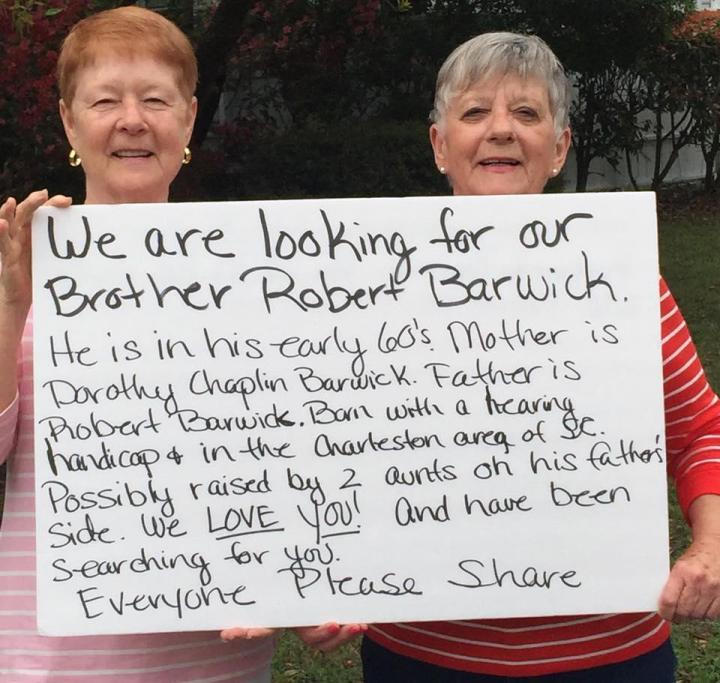
Two sisters were able to find their brother after six long decades when a Facebook post went viral, KCTV 5 Kansas City reported. The sisters — Linda McCloskey and Betty Jean Musselman — posted a picture on Facebook that quickly went viral and drew the attention of forensic historian Michael Jeffcoat, who saw the picture on the social-networking site. He wasn’t alone: It received 250,000 shares in only three days.
McCloskey and Musselman were separated from their brother 60 years ago when their parents could no longer care for them. Their brother, John Barwick, was sent to a school for the deaf and blind, as he had a hearing disability. The sisters had trouble finding Barwick because his first and last names are common in the South, KCTV said. The historian was nonetheless hopeful.
“The last time I saw you, I was hugging you. Now I’m hugging you again.”
“The first time I hugged him, I said ‘the last time I saw you, I was hugging you. Now I’m hugging you again’,” McCloskey said. “It was just magnificent, he’s such a wonderful man.” Barwick, McCloskey, Musselman, and Amy Sciotti, McCloskey’s daughter, went to the beach to make up for lost time.
Thanks to social media, the three siblings were reunited again. The sisters even set up a GoFundMe account to buy Barwick a new home, as he has been living in a trailer for the past 20 years.


